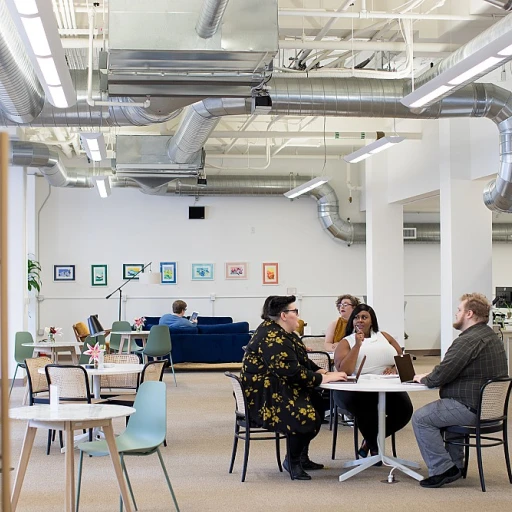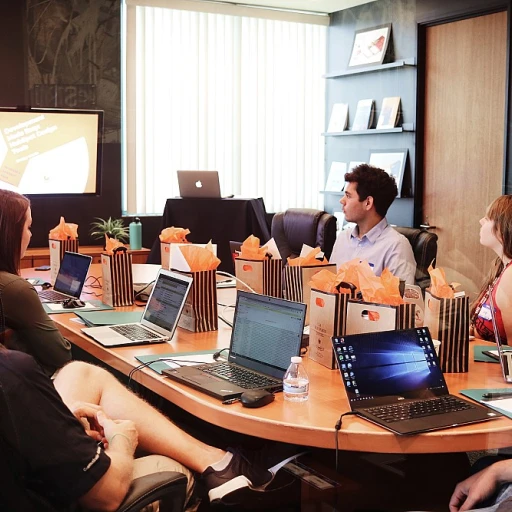
Understanding the Importance of Summer Learning
The Value of Summer Learning Experiences
When it comes to fostering academic growth beyond the standard school year, summer learning offers unparalleled opportunities for high school students. These programs not only fill the learning gap that stretches from June to August but also provide an avenue for pre-college enrichment. Engaging in summer programs, such as those offered by the Massachusetts Institute of Technology (MIT), allows students to immerse themselves in courses often not available during typical high school semesters. Whether one's interests lie in science, engineering, or other fields, these programs become the platform for deeper engagement and understanding.
Summer learning at institutions like MIT supports students by contributing to their academic and personal development. The commitment to continuous learning equips students with skills that extend far beyond textbooks. For example, the benefits of manipulatives in education, which emphasize hands-on learning, demonstrate how different approaches can enhance understanding. Summer opportunities reinforce such concepts by fostering critical thinking and hands-on experiences, essential for future academic and career success.
Moreover, high school juniors participating in summer programs gain an invaluable perspective on university life. Access to MIT’s state-of-the-art facilities on the Boston campus, and interaction with like-minded peers, cultivates an environment ripe for intellectual and social growth. For school students planning to apply for college, these programs offer an edge in the application process. Students return to their high schools having experienced practices synonymous with college-level learning, providing them a significant advantage.
Finally, summer learning paves the way for continued educational pursuits. By engaging in these enriching experiences, school students build a foundation that encourages lifelong learning. For those interested in programs like MITES, the demanding yet rewarding schedule offers a preview of the challenges and triumphs of higher education.
Overview of MIT's Summer Programs
Discovering Exceptional Summer Programs
High school students eager to engage in profound learning experiences will find the Massachusetts Institute of Technology (MIT) offers an array of summer programs. This prestigious university, renowned for its science and engineering prowess, provides a platform for young minds to explore various fields amid the vibrant intellectual climate of its Cambridge campus during the summer months. The cornerstone of MIT’s summer offerings is the MITES (MIT Introduction to Technology, Engineering, and Science) program, which stands out for its intense, cost-free summer curriculum aimed at impacting promising students. This program is tailored especially for school juniors and seeks to cultivate their interest and skills in science and engineering. Students can expect to engage in a rigorous schedule that includes lectures, hands-on projects, and collaboration with peers under the mentorship of MIT's faculty. For those looking to delve into specific areas of science or engineering, the Boston University RISE Internship and Practicum offer another excellent pre-college opportunity. While not directly affiliated with MIT, students can expand their academic repertoire here. Participants engage in cutting-edge research alongside university faculty, giving them a taste of collegiate-level work in a supportive environment during June and July. Moreover, MIT’s summer programs extend online as well, providing greater accessibility for students globally. These digital opportunities ensure that even those who cannot visit the MIT campus in person can still benefit from the institute's educational resources. Therefore, students keen on excelling in their scientific pursuits can engage in mastering math lessons like a pro or explore other avenues of learning through these online platforms. In conclusion, MIT’s summer initiatives are not only intellectually rewarding but also prepare students for success in college. With application deadlines typically set in the early months of the year, early preparation is key for ambitious students looking to seize these opportunities during June and July.Benefits of Participating in MIT's Summer Programs
Discovering the Transformative Advantages of MIT's Summer Programs
Participating in MIT's summer programs offers high school students more than just academic enrichment; it provides transformative learning experiences that extend beyond the traditional classroom setting. Here's why you might consider embarking on this impactful journey:- Hands-on Learning Opportunities: MIT's summer programs emphasize practical, hands-on experiences in fields such as science and engineering. Students learn by actively participating in experiments and projects, which fosters a deeper understanding of subjects like advanced mathematics and cutting-edge technology.
- Exposure to a Collegiate Environment: Spending time at the MIT campus introduces pre-college students to the university atmosphere. It provides a glimpse into college life, which can be invaluable for those planning to pursue higher education in the future.
- Networking and Mentorship: High school students have the unique opportunity to connect with peers who share similar interests and aspirations. Moreover, they can interact with MIT faculty and current students, gaining guidance and mentorship that can be pivotal in their educational and career paths.
- Access to MIT's Resources: Participants in these programs gain access to MIT's extensive resources and facilities. This includes state-of-the-art laboratories and libraries that are renowned worldwide. Leveraging these resources can significantly enhance a student's learning journey.
- Personal Growth and Development: While the academic aspect is crucial, the summer programs also foster personal growth. Students often leave with improved confidence, time management skills, and a greater sense of independence—all essential traits for future success.
- Cost and Financial Assistance: Despite the seemingly high costs associated with renowned institutions like MIT, many of these programs offer cost-free options and financial aid opportunities. This ensures that deserving students from diverse backgrounds can participate and benefit equally.
How to Apply for MIT's Summer Programs
Steps to Successfully Apply for a MIT Summer Program
Applying for MIT's summer programs can be a crucial step in enhancing high school students' educational journey, bridging the gap between junior year and college experiences. Here’s how prospective participants can set themselves up for a successful application process:- Research Thoroughly: Understand the variety of programs available through MIT. Some programs, like those focusing on engineering and science, may have different prerequisites than humanities-focused tracks. It's important to align personal academic interests with the right summer program.
- Note Important Dates: Application deadlines are typically a key element that cannot be overlooked. For instance, most programs, including those in science and engineering, have deadlines in June and July. Early applications are often beneficial, especially for popular options like MITES, which aims to extend opportunities to underrepresented communities.
- Prepare Required Documents: Gather all essential documents needed for the application. This might include transcripts, recommendation letters from teachers, personal statements expressing interest in the program, and any financial aid forms if applicable. Financial aid could make attending such prestigious programs cost-free or more affordable for qualified students.
- Showcase Personal Achievements: While MIT summer programs are competitive, showcasing personal achievements, involvement in science clubs, student councils, or other extracurricular activities can be an advantage. Highlight any relevant experiences that would provide a unique perspective to the program.
- Utilize Online Resources: Many resources are available online for potential applicants. These can be forums, discussions, or even past program details released by MIT itself. Engage in these communities to gather insights from former students who attended these prestigious summer programs.
- Contact Admissions if Necessary: If there are specific questions or concerns, the MIT admissions office can provide clarification. Initiating contact reflects initiative and a genuine interest in the program.
Student Experiences and Success Stories
Experiences and Achievements from MIT’s Summer Programs
Participating in MIT's summer programs, such as the MITES (MIT's Minority Introduction to Engineering and Science), offers a myriad of opportunities for high school students to broaden their perspectives and hone their skills in science and engineering. Many students who embark on this journey in June and July find themselves immersed in a rigorous and intellectually stimulating environment that mirrors the demands of a college summer program. Students who attended these summer programs consistently report a transformation in their approach to learning and problem-solving. Engaging directly with MIT faculty and experiencing the vibrant MIT campus community empower students to envision a future in prestigious universities or institutes specializing in science, engineering, and technology. A common theme among the testimonials from participants is the profound impact the program has on their confidence and readiness for future academic challenges. Students often express gratitude for the deep dive into academic subjects and the insights gained from networking with peers who share similar aspirations. Additionally, those who take part in MIT's summer opportunities frequently cite the exceptional level of support provided throughout the application process. From understanding the application deadlines in June through securing financial aid, participants feel adequately equipped to succeed in an environment that encourages free exploration and innovation. The sense of achievement is palpable as students complete the programs. Many have realized the substantial value of this experience, fostering a life-long inclination towards continuous learning and academic excellence. Whether they focus on pre-college preparation or strive towards advanced studies in STEM fields, their time spent at MIT proves invaluable for their educational journey and personal growth.Continuous Learning Beyond Summer Programs
Embracing Continuous Learning Opportunities
Completing one of MIT’s renowned summer programs can be a transformative experience for high school students, offering exposure to advanced science, engineering, and other academic fields. However, the pursuit of knowledge doesn't have to end with the culmination of the program. Many students discover that the thirst for learning continues beyond July and August, propelling them to seek out further educational opportunities.
To maintain momentum, students can explore a number of online resources and follow-up programs through MIT or other institutions. The university often provides insights into advanced topics through cost-free initiatives, allowing students to delve deeper into subjects of interest. This environment fosters an appetite for lifelong learning, encouraging participants to expand their knowledge even after they return to their usual school activities in the fall.
For those who took part in the MITES or other MIT summer offerings, joining related clubs or study groups can be a great way to keep the newly acquired skills sharp. Many students also benefit from seeking mentorship opportunities, connecting with professionals or alumni who can provide insight into future career paths and academic pursuits.
- Engage in free online courses available from institutions like MIT to further explore interests sparked during the summer program.
- Attend local workshops or enroll in additional pre college activities that may be available in nearby universities like Boston University, especially in areas like science and engineering.
The journey of learning is a lifelong endeavor. To support continuous advancement, individuals should remain proactive, seek opportunities, and harness the enthusiasm gained during MIT summer experiences. This approach not only prepares them for college but instills a resilient adherence to education throughout life.













